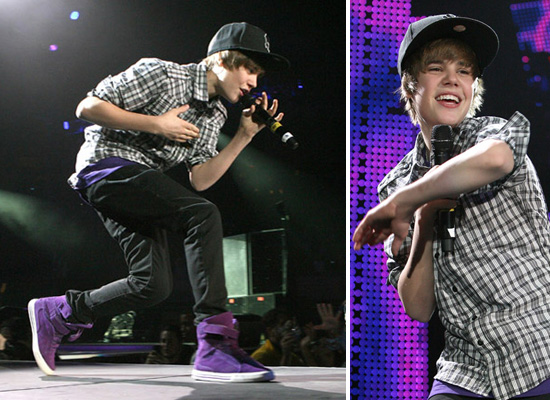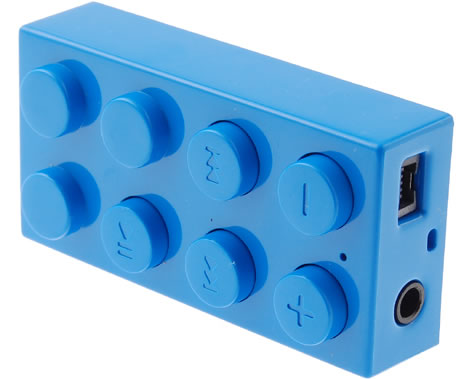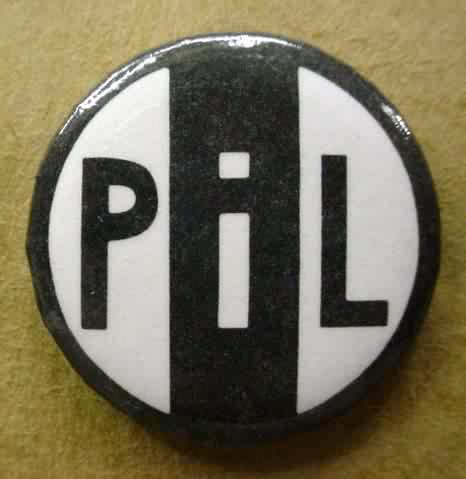Written by Phillip Mlynar
Phillip Mlynar isn’t Australian, doesn’t roam a post-apocalyptic wasteland searching for fuel and may not even own a dog. But ask him the timeless question, ‘U mad, doggie?’ and he’ll reply, ‘Yes, I am.’ Fresh from his stint of yelling ‘Eff you and Your Heroes‘ like this was a listening session for the first Lench Mob tape, Phillip is back to vent his frustrations about the current state of the rap game.

10. Branding
“I like Nike but wait a minute/The neighborhood supports so put some money in it…” So proclaimed the great Chuck D. Sadly, these days his words sound like a relic from an altogether punchier era, such is the enthusiasm rappers show towards basically agreeing to rhyme for a free baseball cap that won’t really protect them against the global-warming era elements anyway. Corporate sponsorship of artists could have been a philanthropic solution to declining record sales. Instead, thanks to the myopic desperation of most rappers, it’s become nothing but a pass for large corporations to rejoice in a cost-cutting 99% decrease in their promotional budgets. Note to rappers: Aligning yourself with companies who don’t give a damn about hip-hop isn’t healthy for any aspect of the scene. And when you get too fat and old for them to care about giving you free jeans, that ol’ box of Newports and some Puma sweats is going to seem like the financial nest egg you never quite could attain.

9. The Non-Retirement Of Shawn Carter Vol. 3
It’s easy to criticize the recent edition of Uncle Shawn: He’s basically re-made the same album five times over since The Blueprint; he insists on trying to name drop hip bands like some out-of-touch uncle gesticulating “Yo!” while wearing a chunky-knit cardigan; creatively he’s given up the idea of progressing as a writer; and his recent hits sound peculiarly like Shirley Bassey numbers. More strikingly, it’s arguable that hip-hop would be in better creative shape if he’d held good on his promise to put down the mic.
Jay-Z’s not just a rapper considered the GOAT by a whole generation – he also holds a gate-keeper position in the industry that few, if any, artists have ever attained. And it’s a position he seems intent on milking solely for his own pockets. Jay’s presidency at Def Jam could have been a cue to bring through a hungry new wave of rap talent – or an opportunity to give deserving acts like The Roots and Ghostface real financial promotional support – but instead he kinda kept all the kitty money for his own shenanigans. And while his Live Nation deal probably meant that he could finally add one of those fancy Viking stoves to his kitchen, that’s a whopping $150 million that’s never going to be invested in new talent. Throw in Jigga’s woeful record in talent spotting (see: overlooking Kanye for so long; putting on a stream of rubbish Roc-A-Fella oiks), and it’s a sad truth that while Jay-Z’s still at the top as both a recording artist and a man who does business (as I think he once so wittily quipped), it’s gonna be hard for a fresh batch of faces to scale to similar heights.
8. Public Image
Back in the era when signing to a major label was a common goal for hip-hop artists, a new rapper’s attempt to make a name for themselves was an earnest and simple thing. First, they’d likely co-star as a featured guest or on a posse cut with a more famous rapping friend. Then, if people warmed enough to their verse, they’d be given a shot with a solo single (often produced by a popular beatsmith of the day). Some showed and proved, others were Preacher Earl. But the nuts and bolts of the come-up process was largely done with dignity and behind closed doors.
Not any more. Now we’re exposed to the turgid sight of an upcoming rapper’s every excruciating industry move. It’s hard to drum up excitement for someone like B.o.B. when you’ve already been bombarded with umpteen YouTube videos and failed single attempts and viral video shots and shoe-horned collabos that are never going to work and a billion email blasts. And B.o.B’s one of the better new wave rappers. There’s come to prominence this horrid belief that it’s best to put it all out there in the hope that something somehow will stick – but most cases it only shows how false and calculated a rapper’s image is. How many changes has the perennially-not-gonna-blow Wiz Khalifa been though? I remember interviewing him back when he was making Kanye-esque music full of soul samples. Then he started being a techno-happy club kid. Then a T.I.-lite. If Yelawolf takes off he’ll probably discover some white trash roots next.

7. Premature Rap Ejaculation
Having no knowledge of any music scene other than hip-hop that’s made by artists who reached their peak back in August of 1995, I have no idea how prolific guitar bands and classical pianists are, but I’d blindly bet that no other genre comes close to releasing ‘new’ music with the unfiltered gusto of hip-hop. Charles Hamilton’s run of releasing seven or eight mixtapes over seven or eight months in the run-up to his supposed debut album now seems like a model of restraint compared to cats like Gorilla Zoe dropping a mixtape a day. The insane frequency of new music unfortunately means that its hype-life is next to zero: When Joell Ortiz put together his Covers The Classics tape it was the buzz of the blogs for about six hours. Then it all but disappeared. Before ‘leaking’ their latest barrage of non-stop music, hip-hop artists would do well to consider this: If you’re releasing more albums a year than Jimi Hendrix, Miles Davis or Chas & Dave, then you’re very obviously not taking enough time to master your art.

6. Faith In Live Music Saving Rap
As they used to say: “Mwa-ha-ha-ha-ha!” As anyone who’s suffered through the horrors of a live rap gig can attest, there are only three NME-accredited hip-hop groups that can put on a good live show, and those are Public Enemy, The Roots and Michael Franti’s Spearhead. Everyone else still sucks mega donkey dick live on stage.

5. Oh, Snap!
An album cover or a photograph of a rapper in a magazine used to help take you inside their world, add to their mystique, and ultimately enhance the listening experience. Think the Ultramagnetic MC’s in all their shiny-tracksuit glory standing around in the rubble of the Bronx, making them look like four space cats roaming across an undiscovered world. Think Redman alternately on the cover of The Source with tissue up his nose or buried neck deep in mud for Dare Iz A Darkside. Love ‘em or mock ‘em, even the Pen-N-Pixel covers caught the eye and made you wonder about the music contained inside. Now, instead, we have Google image search. It’s a quick and direct link to lots of rubbish, low-res pictures of rappers looking entirely ordinary. So, manna to the undiscerning blog aggregator kids. Handily, with web-publishing the norm and downloads replacing physical releases, it’s all but obliterated the idea of a label or artist commissioning a decent photo shoot. You’ve probably bought some amazing records in the past on the basis of the cover art alone. That ain’t gonna happen any more.

4. Em Pee Frees!!!
Talk about using it to drum up hype and get your name around, but there’s no doubt about it: free music is synonymous with worthless music. It usually holds no value, and with no investment from the listener it normally forms no lasting bond. (At this point I should insert an anecdote about buying a record from my local store and reading the liner notes on the bus on the way home. Which might be a bit of a cliched reminisce, but it’s a sure bet that any record you read on the bus home is one you still treasure.)
Frustratingly, giving away music for free is more and more becoming the norm – and in more and more inexplicable ways. Roc Marciano just dropped a very good record that obviously has a very niche market (er, largely people reading this website). But ahoy there! Now he’s going to ruin it by quickly following up an album he presumably wants people to buy with one that he’s giving out for free (Marcberg Reloaded)! All it’s likely to do is decrease his sales due to people downloading the presumably inferior songs that didn’t make the album cut and deciding it’s not worth paying for.
And there’s more! Increasingly, labels are starting to release an album in digital form first and physical form later – and not even in particularly lust-worthy packaging (see: the Diamond District CD debacle). This is pretty much penalizing those people left who still want to pay for their music and own something tangible. It’s like saying, “Hey, we know you used to hold us down but now we’d prefer to put something out there for the thrifty right-click hawks and then if we luck out and make enough money from those seven legit iTunes downloads we’ll let you buy it on vinyl.” Cheers.
(Stating The Bloody Obvious Note: The only people really using free music as an effective promotional tool, whether for their albums proper or live shows, are already established cats on majors like Jay-Z or Lil Wayne, the latter of whom most people seem to have handily forgot had a very successful ten-plus year career as a platinum-selling rapper with The Hot Boys before using a few mixtapes to help him achieve ubiquity.)

3. The “Support” Movement
There has never been a more self-pitying piece of hip-hop slang than the current trend of people asking you to “support” a rapper. You support a football team through their ups and downs because you have an emotional and visceral attachment to them. You support a family through thick and thin because it’s what you do. You shouldn’t, however, feel any pressure to “support” a rapper – and especially not one whose entire contribution to the artform is little more than one hastily cobbled-together mixtape attached to a badly-phrased promotional email (likely not BCC’d to boot). Supporting people without talent only helps to lower the threshold for the tolerance of wackness – which only results in inferior music. Unless rappers are suddenly able to claim charitable status from their local municipal office – and produce an authenticated certificate – then the sad pleas for “support” need to stop.

2. The Minajian Philosophy
On her own demerits, there’s nothing much wrong with Young Money rapstress Nicki Minaj. She’s a terrible rapper who spits worse than Lil Mama and makes music that’s perfect for 12-year-old girls to listen to. As such, she’s unlikely to register on the radar of anyone who’s interested to hear that Tribeca’s still making music. So taking time to get annoyed at her is a waste of energy. Unfortunately, people won’t leave it at that – especially ‘cos there’s little that excites writers more than the novelty of a female rapper (a trait only pipped by the socio-eco-anthro-political potential of writing about a white rapper).
So as Ms Minaj gears up to release her album (early prediction shocker: It won’t be very good), we’re going to be swamped by a stream of articles and blog posts attempting to contextualize her. Because that’s what people like to do. Someone will run a profile calling her the sassy new face of a generation. Someone will analogize her to a real-life black Barbie doll; they might even attempt to pitch an urban re-make of Mannequin (another prediction: It also won’t be very good, but Lil Wayne will make a cameo). People will try and contextualize her whole Japanese Harajuku obsession, instead of making cheap jokes asking why she couldn’t just have gone and gotten a tattoo of some Kanji symbols that really translates as “Whore For Hire” like everyone else. Someone will pay a poncy stylist to make her look like a futuristic female assassin and slap her on the cover of a style magazine. Come Christmas, you’ll probably be able to buy The Minajian Theory in your local Urban Outfitters, next to those books full of photos of cats dressed up in hats. Enough already. Please.
1. Cheap-Ass Rap Fans
Yup, we can all pat ourselves on the back with this one. You don’t need to read any of these 3,000 word articles attempting to decipher the state of the music industry to settle on one sad truth: Without fans stumping up to pay for music, we’re pretty much sailing full-steam up shit creek. The easiest way of letting an artist know that you value their music is to buy it. But that’s clearly not happening any more. Speaking to DJ Spinna last year, he stated that back in ye glory indie rap days an artist would view 10,000 sales of a 12-inch single as the benchmark for a successful release. Now, he said, it was 1,000 CD sales. Which is a number so low it’s a wonder anyone bothers.
Accepted, often the labels and artists don’t seem to be helping themselves (i.e. not releasing vinyl versions of albums when aging vinyl collectors might be the one demographic left who’ll still stump up money for an album). But none of the much-ballyhooed alternative revenue streams seem to have effectively taken up the slack. And it’s telling that more and more of the dialogue in hip-hop these days is about ‘the industry’, whether it’s rappers moaning about their labels via Twitter or fans wittering about first-week sales. (Aside: Why do people who never buy music use first-week sales to judge the quality or success of an album?) If the commentary reflects the health of the scene, then we’re sadly teetering on the edge of a panic. But it’s one that could be quite easily solved by simply – ahem – manning up and paying a small amount for some music you like. A few years back, if everyone who clamored to claim they were a Clipse fan actually bought Hell Hath No Fury then the brothers Thornton would be multi-platinum. They’re not, ‘cos it’s a lot easier to just download the album than pay for it. But consider this: If you download all your music for free, you can’t then legitimately complain when your favorite rapper decides that it’s just not worth it any more.




No comments:
Post a Comment